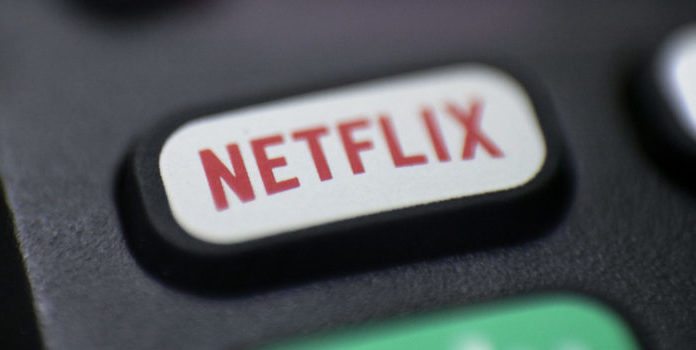(Headline USA) An unexpectedly sharp drop in subscribers has Netflix considering changes it has long resisted: Minimizing password sharing and creating a low-cost subscription supported by advertising.
Meanwhile, critics including billionaire Elon Musk slammed the company’s incessant virtue signaling for leftist causes as the primary source of its subscription woes.
The woke mind virus is making Netflix unwatchable
— Elon Musk (@elonmusk) April 20, 2022
Netflix’s customer base fell by 200,000 subscribers during the January–March quarter, the first contraction the streaming service has seen since it became available throughout most of the world other than China six years ago.
The drop stemmed in part from Netflix’s decision to withdraw from Russia to protest the war against Ukraine, resulting in a loss of 700,000 subscribers. Netflix projected a loss of another 2 million subscribers in the current April–June quarter.
The erosion, coming off a year of progressively slower growth, has rattled Netflix investors. Shares plunged by more than 25% in extended trading after Netflix revealed its disappointing performance.
If the stock drop extended into Wednesday’s regular trading session, Netflix shares would have lost more than half of their value so far this year—wiping out about $150 billion in shareholder wealth in less than four months.
Looming changes announced late Tuesday were designed to help Netflix regain momentum lost over the past year as pandemic-driven lockdowns that drove binge-watching were lifted and deep-pocketed rivals such as Apple and Walt Disney began to chip away at its vast audience with their own streaming services.
The Los Gatos, California, company estimated that about 100 million households worldwide were watching its service for free by using the account of a friend or another family member, including 30 million in the U.S. and Canada.
“Those are over 100 million households already are choosing to view Netflix,” Netflix CEO Reed Hastings said. “We’ve just got to get paid at some degree for them.”
To prod more people to pay for their own accounts, Netflix indicated it will expand a trial program it has been running in three Latin American countries—Chile, Costa Rica and Peru.
In these locations, subscribers can extend service to another household for a discounted price. In Costa Rica, for instance, Netflix plan prices range from $9 to $15 a month, but subscribers can openly share their service with another household for $3.
Netflix offered no additional information about how a cheaper ad-supported service tier would work or how much it would cost. Another rival, Hulu, has long offered an ad-supported tier.
While Netflix clearly believed these changes would help it build upon its current 221.6 million worldwide subscribers, the moves also risked alienating customers to the point they cancel.
Netflix was previously stung by a customer backlash in 2011 when it unveiled plans to begin charging for its then-nascent streaming service, which had been bundled for free with its traditional DVD-by-mail service before its international expansion.
In the months after that change, Netflix lost 800,000 subscribers, prompting an apology from Hastings for botching the execution of the spin-off.
But Musk—who has been grabbing headlines for his plans to take over the equally “woke” Twitter—was one of many who suggested that the company’s politics were harming its potential customer base and, by extension, its shareholders.
Virtually all of the streaming service’s programming has some sort of radical agenda at its core to the point that memes have emerged to mock its programming.
please log tf off forever pic.twitter.com/ijaQvYu1jS
— Marlow Stern (@MarlowNYC) March 14, 2022
Hastings has not been shy about displaying his own politics. And the company’s chief content officer, Ted Sarandos, is a former Obama campaign bundler whose wife was appointed ambassador to the Bahamas during the former president’s administration.
That likely spurred a post-presidential content-development deal with the Obamas, estimated to be worth up to $50 million.
Unfortunately, the investment in Obama’s brand—including a recent nature documentary titled Our Great National Parks—hasn’t yielded the expected return in dividends.
In the most recent quarter, Netflix lost 640,000 subscribers in the U.S. and Canada, prompting management to point out that most of its future growth will come in international markets. Netflix ended March with 74.6 million subscribers in the U.S. and Canada.
Tuesday’s announcement was a sobering comedown for a company that was buoyed two years ago when millions of consumers corralled at home were desperately seeking diversions—a void Netflix was happy to fill. Netflix added 36 million subscribers during 2020, by far the largest annual growth since its video streaming service’s debut in 2007.
But Hastings now believes those outsize gains may have blinded management. “COVID created a lot of noise on how to read the situation,” he said in a video conference Tuesday.
Netflix began heading in a new direction last year when its service added video games at no additional charge in an attempt to give people another reason to subscribe.
Escalating inflation over the past year has also squeezed household budgets, leading more consumers to rein in their spending on discretionary items. Despite that pressure, Netflix recently raised prices in the U.S., where it has its greatest household penetration—and where it’s had the most trouble finding more subscribers.
Adapted from reporting by the Associated Press

